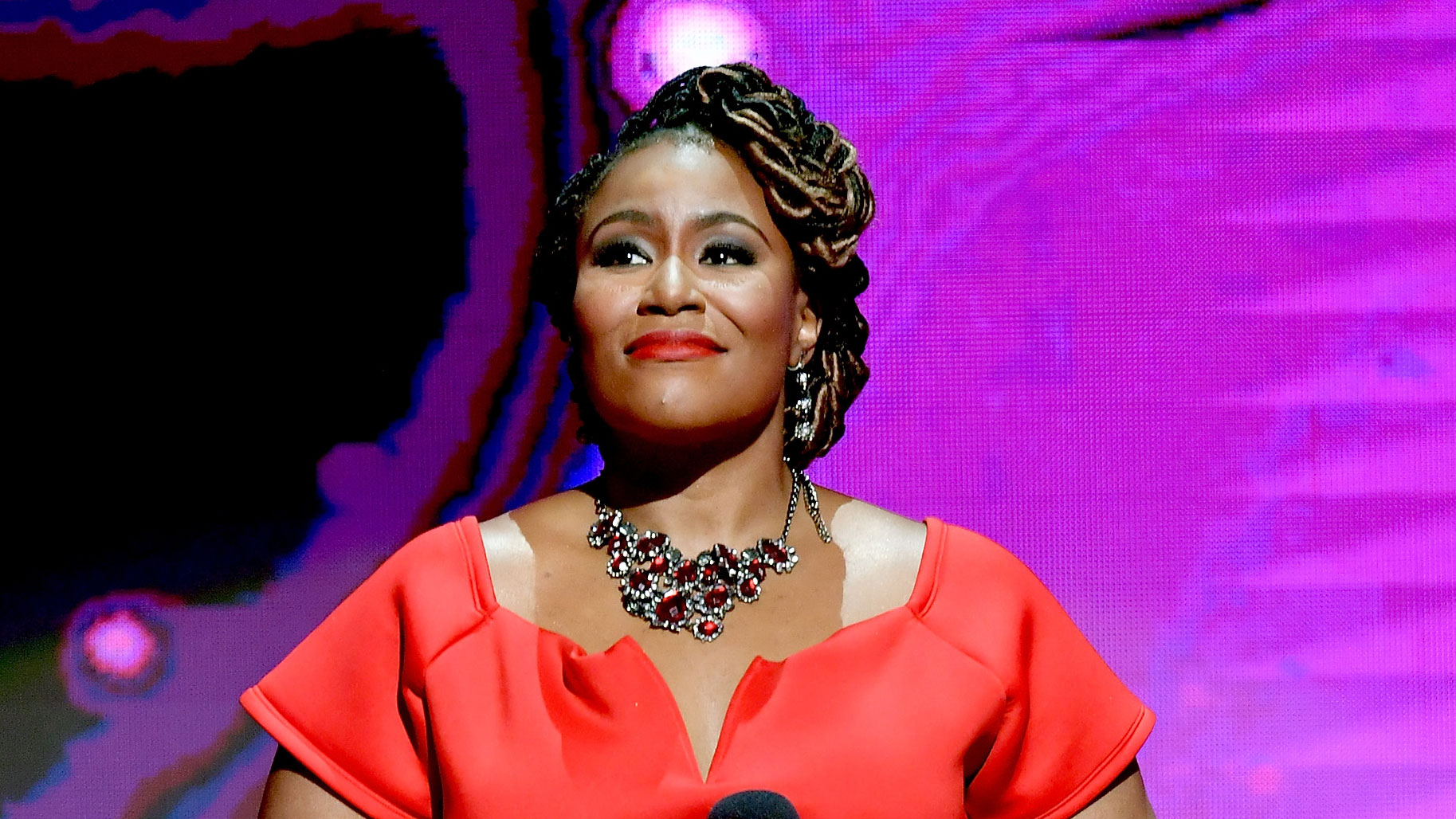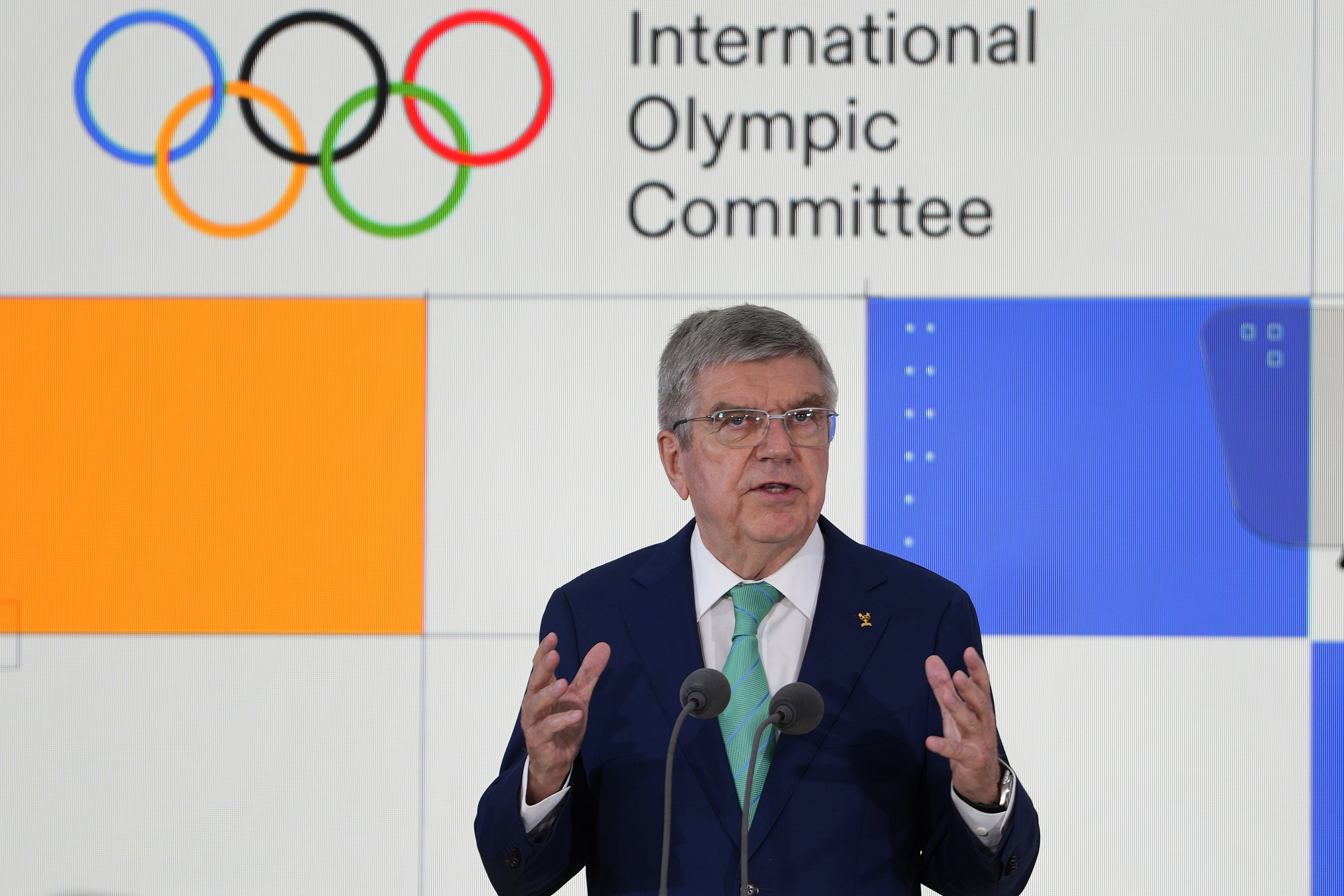Congress' most serious gun control effort in years cleared its first hurdle Thursday as the Senate pushed past conservatives' attempted blockade under the teary gaze of families of victims of December's Connecticut school shootings.
The bipartisan 68-31 vote rebuffed an effort to keep debate from even starting, giving an early victory — and perhaps political momentum — to President Barack Obama and his gun control allies. Four months after 20 first-graders and six staffers at Sandy Hook Elementary School in Newtown were killed, relatives watching the vote from a gallery overlooking the Senate floor dabbed at tears and clasped hands, some seeming to pray.
For full U.S. news and politics coverage, visit NBCNews.com.
Even so, few supporters of the legislation are confident of victory. Several weeks of emotional, unpredictable Senate debate lie ahead, and a mix of gun-rights amendments, opposition from the National Rifle Association and skepticism from House Republican leaders leave big questions about what will emerge from Congress. Foes of the proposed new restrictions say they would penalize law-abiding citizens and do nothing to curb gun violence.
"The hard work starts now," said Senate Majority Leader Harry Reid, D-Nev., who brought the legislation to the floor for debate.
Still, in a Congress marked by a notable lack of cooperation between Democrats and Republicans, Thursday's vote was one of several displays of unusual rapport across party lines. In other examples not connected to the issue of guns:
—Negotiators for the two parties said they had reached agreement on the major elements of a Senate immigration bill they're expected to unveil next week.
U.S. & World
—The top Republican in government, House Speaker John Boehner of Ohio, publicly disagreed with his party campaign chairman's criticism of Obama's budget proposal to trim future Social Security and Medicare benefits. Wednesday night, GOP senators left a White House dinner praising Obama for reaching out to them on his budget.
—Senators of both parties had a rare joint luncheon to honor Arizona Sen. John McCain, the GOP's 2008 presidential nominee, on the 40th anniversary of his release from a North Vietnamese prison.
Hoping to bring pressure on Congress to act on gun control, supporters of new restrictions have been demonstrating in Washington. They have erected a mock graveyard with thousands of crosses on the National Mall, symbolizing victims of gun violence.
The Senate's firearms bill would subject nearly all gun buyers to background checks, add muscle to federal laws barring illicit firearm sales and provide slightly more money for school safety measures.
Excluded and facing near-certain defeat in upcoming votes were proposals to ban military-style weapons and high-capacity ammunition magazines — factors in the Newtown killings some other recent mass shootings. But keeping those provisions out of the current legislation did not mollify critics.
Opponents said the remaining proposals were unwarranted intrusions on the Second Amendment right to bear arms, would be ignored by criminals and would do little to prevent future Newtowns. Obama's plans have received scant support from Republicans and many moderate Democrats, with many saying they prefer improvements in dealing with the mentally ill and stronger enforcement of existing laws.
"I'm not interested in a symbolic gesture which would offer the families of the Sandy Hook shootings no real solutions that they seek," said Sen. John Cornyn of Texas, the Senate's No. 2 Republican.
Congress hasn't approved major gun restrictions since enacting an assault weapons ban 19 years ago, a prohibition that lawmakers let lapse after a decade.
Some potential amendments could broaden gun rights and weaken supporters' backing for the overall bill.
One proposal is by Sens. Lindsey Graham, R-S.C., and Mark Begich, D-Alaska, who say it would improve how the federal background check system blocks weapons from going to people with certain mental problems, though critics say it would make it harder in some cases to do so. Another possible amendment would require states to recognize permits for carrying concealed weapons issued by other states.
In Thursday's vote, 50 Democrats and 2 Democratic-leaning independents were joined by 16 Republicans in voting to begin debate on the legislation. Twenty-nine Republicans and two Democrats facing re-election next year in GOP-leaning states voted "no" — Alaska's Begich and Mark Pryor of Arkansas.
After the roll call, Obama spoke by phone with some Newtown families and said he would "keep fighting for the votes they deserve," said White House spokesman Jay Carney.
The Senate plans to debate an amendment Tuesday expanding background checks less broadly than the overall legislation would. Broadening the system to cover more transactions is the heart of the current effort on guns.
That amendment, a compromise between Sens. Patrick Toomey, R-Pa., and Joe Manchin, D-W.Va., would subject buyers in commercial settings like gun shows and the Internet to the checks but exempt non-commercial transactions like sales between friends and relatives.
That accord, unveiled Wednesday, was designed to build bipartisan support for the legislation and seemed likely to do so. Toomey and Manchin are among the most conservative members of their parties and are both gun owners with NRA ratings of "A."
Toomey said Thursday he believes supporters of his compromise with Manchin would be able to beat back any filibuster attempt.
"Beyond that, I just don't know yet," he said on "CBS This Morning."
Gun-control groups have embraced the Manchin-Toomey compromise with varying degrees of enthusiasm, and they continued to applaud it on Thursday — while also expressing concerns about some provisions.
Besides the exemption for private sales, gun control advocates expressed displeasure with language letting gun dealers sell handguns to out-of-state customers, exempting some holders of permits for concealed weapons from background checks and shielding individuals who sell guns from some negligence lawsuits.
"We are optimistic that this bill will make a dramatic difference in reducing gun violence," said Dan Gross, president of the Brady Campaign to Prevent Gun Violence.
The NRA said it opposed the Manchin-Toomey compromise and warned senators that it would count votes on provisions it opposes in its evaluation of candidates that it provides its members, who the organization says number nearly 5 million.



